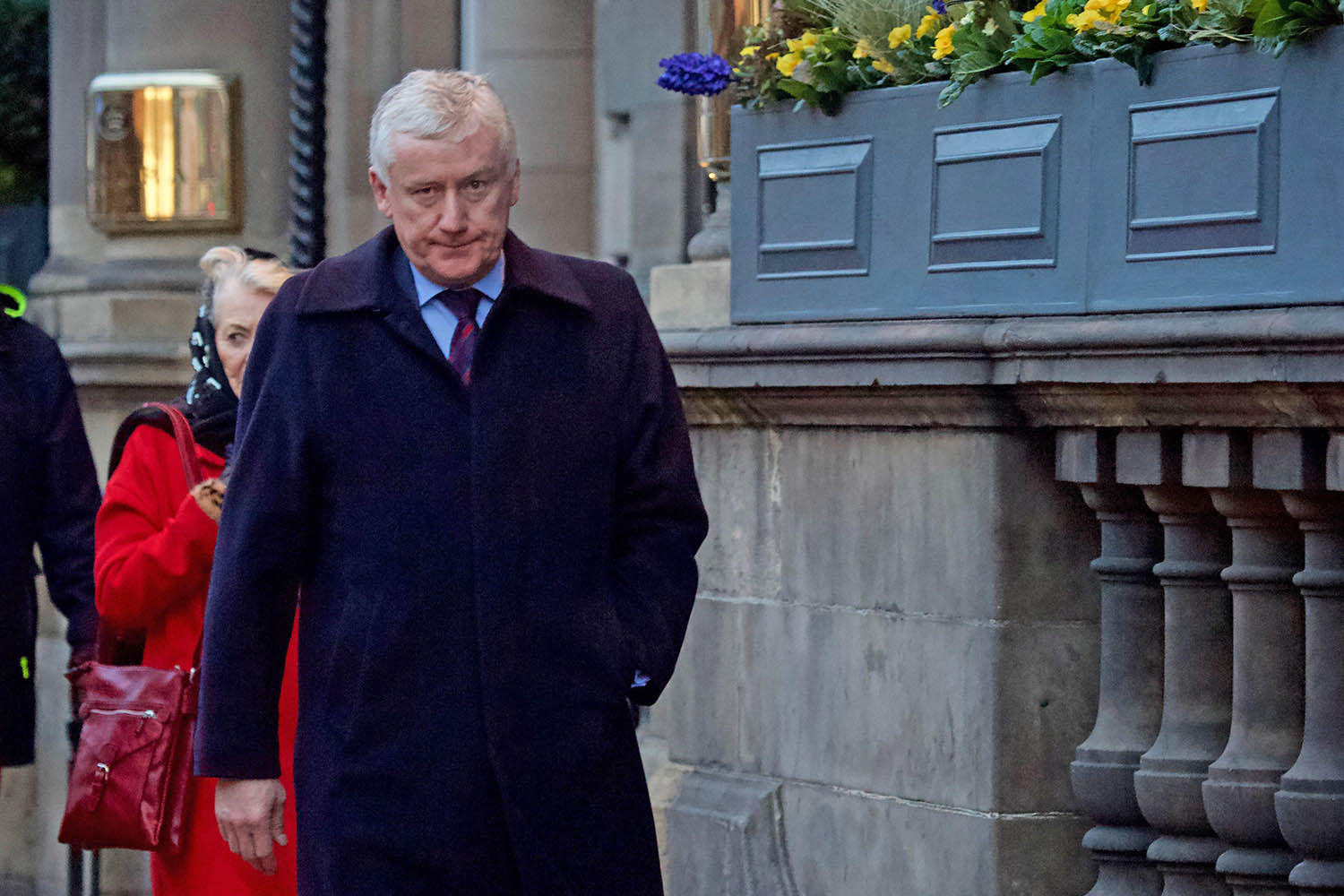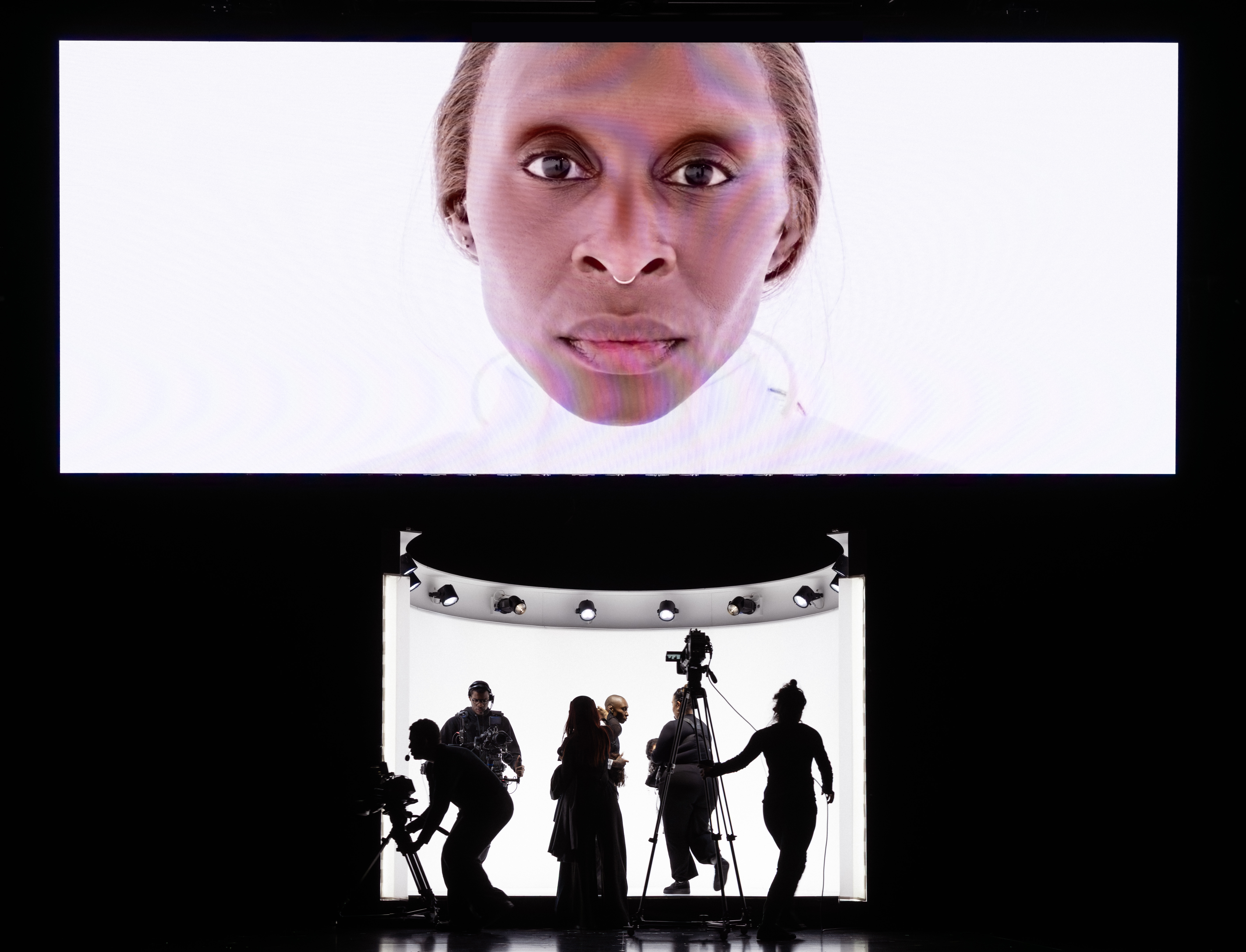Within a few months of taking over as chief executive of the Royal Bank of Scotland (RBS) in March 2000, Fred Goodwin adopted a new slogan: “Make It Happen”. Fresh from acquiring NatWest, a bank three times RBS’s size, and in a sign of hubris to come, he had it plastered over Heathrow Express trains and on airport gangways worldwide.
In James Graham’s new play Make It Happen – the centrepiece of this year’s Edinburgh International Festival theatre programme – Goodwin, brilliantly played by Edinburgh-born actor Sandy Grierson, frequently barks out the slogan after giving cowering subordinates another outlandish set of orders.
These include “get the Queen to open our new headquarters” and “buy me a first edition of The Wealth of Nations”.
Graham’s play – a “fictionalised satire” that conveys the story of the RBS collapse in a highly entertaining way using song, dance, burlesque, quasi-pantomime and horror – has three core messages.
First is that Edinburgh wasn’t just the epicentre of the Enlightenment, the period of intense intellectual activity from the 1750s to the 1790s that gave birth to free-market capitalism through the works of Adam Smith. The city was also proximate to the global financial crisis – which, without the enforced generosity of taxpayers, almost snuffed out free-market capitalism.
The second message, rammed home by Brian Cox, who plays a camped-up ghost of Adam Smith, is that anyone wishing to understand how business operates shouldn’t just read The Wealth of Nations (1776). They should read it in conjunction with The Theory of Moral Sentiments (1759), in which he explains how morality arises from human interactions and a capacity for sympathy, not from any innate moral sense or divine intervention.
The third is that the lessons of the financial crisis have yet to be fully learned. Cox’s Smith alludes to this, making reference to the argument that RBS’s calamitous 2008 failure triggered austerity, Brexit and the rise of populism. But Graham could have hammered it home a bit more.
Chancellor Gordon Brown and prime minister Tony Blair are given too easy a ride in Make It Happen. New Labour made a conscious decision to “set the banks free” in 1997-2008. Influenced, it seems, by libertarian thinkers such as Friedrich Hayek and Milton Friedman, the duo assumed there was no real need for financial regulation, as bank bosses knew what they were doing and could be relied upon to run their institutions safely and with integrity. Under a “light touch, limited touch” regulatory regime, they believed, banks would be liberated, allowing more credit to flow around the economy, boosting GDP growth and bringing enormous tax revenues into the exchequer.
Blair and Brown’s blind spot was, of course, that some of the titans of finance in whom they had placed their faith were, in fact, unscrupulous, hubristic amateurs and even idiots, who might end up blowing up centuries-old institutions and the wider economy through a mixture of incompetence, recklessness and greed.
On leaving the performance in the Festival Theatre last week, my overriding thought was a question: why is the current chancellor, Rachel Reeves, so oblivious to this? She still seems to believe that opening the floodgates of finance, by dismantling the last vestiges of carefully considered post-crisis reforms such as the ring fence and senior managers regime, will permit her to achieve her goal of rapid economic growth. Her reforms to relax capital rules for lending, unveiled in mid-July, are ill-considered.
Newsletters
Choose the newsletters you want to receive
View more
For information about how The Observer protects your data, read our Privacy Policy
After all, the cost of cleaning up after a banking collapse far outweighs the benefits that might accrue as the banks swell their balance sheets. In the UK’s case, the collapse of RBS not only meant that the bank – today a much smaller but safer institution, which was renamed NatWest in July 2020 – was recently reprivatised at a £10.5bn loss to taxpayers. Its near collapse – together with those of other imprudently managed and out-of-control banks such as Halifax Bank of Scotland – has also had seismic aftershocks, including the fact that British wages have stagnated in real terms since 2008.
Of course, macroprudential regulation is much more rigorous today than it was before 2008 (it could hardly be worse). The Prudential Regulation Authority, formed in 2013, is much more intensely focused on capital, liquidity and asset quality than its predecessor, the Financial Services Authority, and does not hesitate to jump on any UK-based banks whose capital ratio falls below a certain threshold. But there’s no room for complacency.
The Financial Conduct Authority, the microprudential regulator, gives the impression of being too close to the banks, and UK bank assets are today 4.1 times the country’s GDP, which is only marginally down from the 5.6 times GDP level they reached when Fred the Shred was making it happen, and RBS was the world’s biggest bank by assets, in October 2008. Reeves should beware a visit from these ghosts again.
Photograph by Terry Murden / Alamy Live


